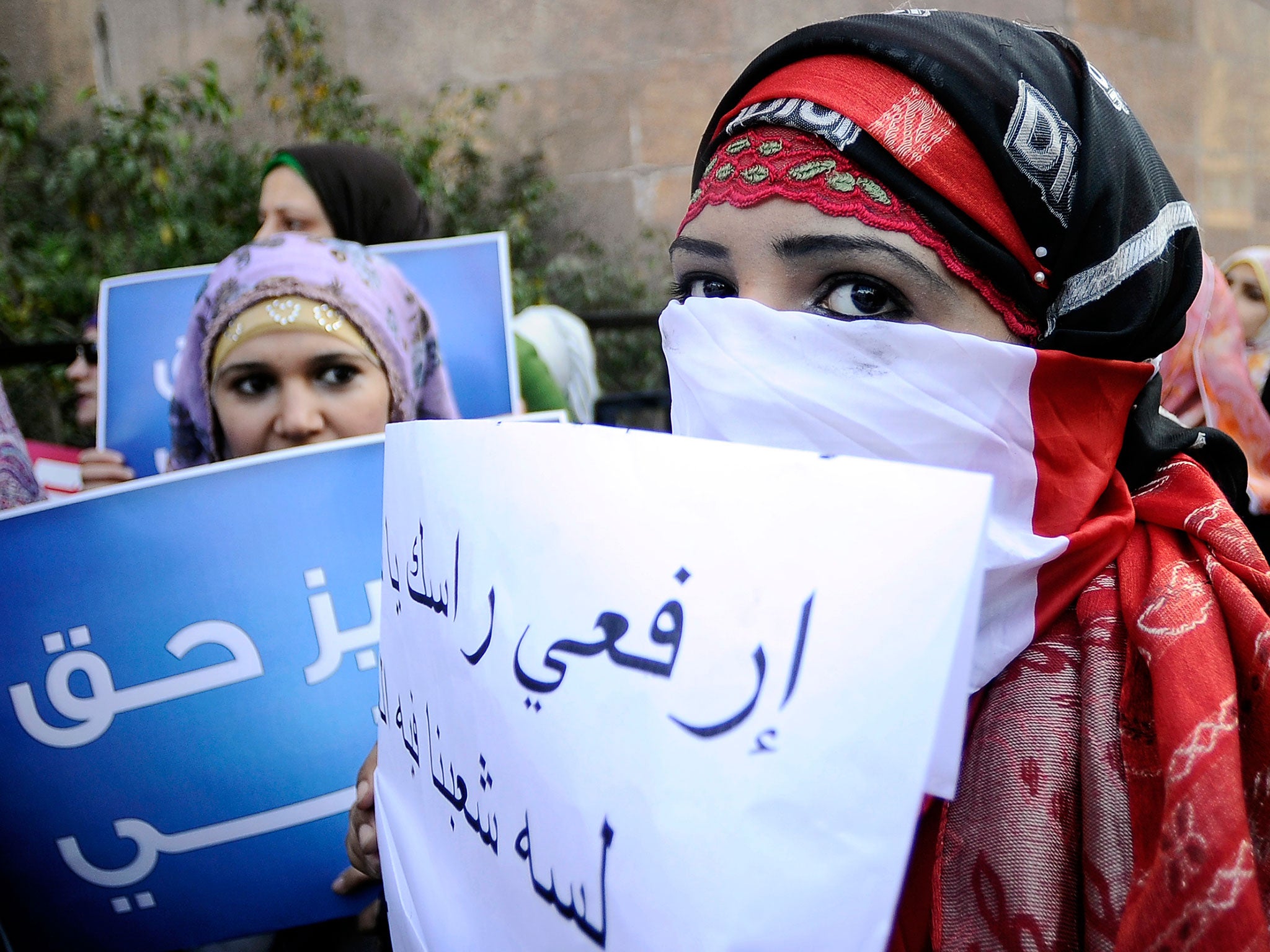Egyptian MP faces backlash for trying to make the punishment for adultery gender neutral
Attempts to end gender discrimination in Egypt's heavily prejudiced personal status laws have met fierce criticism from legislative and religious representatives

A member of parliament in Egypt has demanded that the country change the law to make the penalties for adultery the same for both men and women, but she has faced stiff opposition from politicians and religious professors.
Currently, the sentence for a wife found to have committed adultery in Egypt is two years in prison. A husband caught cheating only receives a six month sentence, and is only liable for punishment if he commits adultery in the family home.
Additionally, if a husband catches his wife in the act of cheating, he can kill both her and her lover and receive only a 24 hour detention.
The bill, recently proposed by Margaret Azer, the Christian leader of the Support Egypt coalition, has provoked outrage in Cairo’s political circles and been rejected on numerous grounds.
Amena Nosair, a member of the parliamentary Legislation Committee and a religion professor at Al-Azhar University, called for the bill to be voted down on the grounds that women should receive more severe punishments for adultery considering the potential knock-on effects such as obscuring the paternity of children, Al-Monitor reported.
Independent member of parliament and member of the Egyptian Human Rights Committee Ilhami Agina - who has previously made headlines for ‘jokes’ about female genital mutilation and suggesting virginity tests for female university students - said he believes the penalty for women should be increased “to preserve timidity.”
“The woman is the main reason behind adultery, not the man,” he added.
Religion Committee Secretary Omar Hamroush said the committee would have to debate Ms Azer’s bill to determine whether it is compliant with Sharia, or Qur'anic, law.
Ms Azer has fought back against criticism, commenting that “Neither Sharia nor any of the [other] Abrahamic religions prescribe a penalty for adultery that discriminates based on gender.”
“I am a representative of the whole nation, including the Muslim nation and the Coptic [Christian] one,” she said.
There has been some support for the bill: Gamal Qutb, a former head of Al-Azhar University’s fatwa committee, which is consulted on all matters Sharia, said that in his opinion there is “nothing wrong with making equivalent the [penalty for] men and women who are involved in the crime of adultery.”
“Equality is a general Islamic principle,” he added.

While Ms Azer’s bill wants to maintain adultery’s current status as a crime, but equalise the punishments, attempts have been made in the past to take unfaithfulness out of the law’s hands altogether.
Rights groups say that Egypt’s personal status laws discriminate heavily against women, and aggression and violence towards women has been on the uptick since political upheavals that removed President Hosni Mubarak in 2011 and President Mohamed Morsi in 2013.
A 2013 Thomson Reuters Foundation ranked Egypt as the worst of 22 Arab states in a survey with regards to women’s rights.
Join our commenting forum
Join thought-provoking conversations, follow other Independent readers and see their replies
Comments
Bookmark popover
Removed from bookmarks